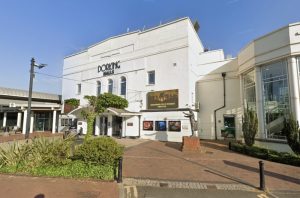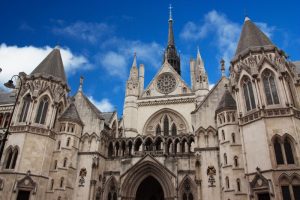Thames Water’s spending on infrastructure is “woefully inadequate”, its behaviour a “disgrace”, and direct lines of communications to MPs “unhelpful” – a meeting into the “largest ever” water outages in “recent history” heard.
Last November tens of thousands of homes in and around Guildford and Godalming were left without water when the utility company failed to deal with the impact of Storm Ciarán. Some 20,346 homes were cut off for more than three hours, and 14,520 for 12 hours or more hours – including hospitals and schools.
So far Thames Water has paid out £1.7million pounds in compensation to those impacted.
The outage led to chaotic scenes as people became increasingly angry with the privately owned water company, with reports of staff and volunteers being verbally abused and spat at.
Addressing the Tuesday, January 31, meeting of Guildford Borough Council’s overview and scrutiny committee was Thames Water’s Paul Wetton. He said it was “By far the largest ever we’ve had to manage in recent history”.
The utility company, which reported an 11 per cent increase in its underlying revenue in its interim 2023/24 accounts to £1.2 billion, needed up to 16 tankers to prop up the network in order to feed water directly to cut off hospitals during the outage. It also delivered 750,000 litres of bottled water to customers described as “priority”.
Thames Water’s Tess Fayers acknowledged the huge disruption and apologised for all the impacted homes, businesses and other critical operators such as hospitals and schools that were cut off. She said: “I’m also aware that there is also a sense of heightened unease about the water supply with a number of issues being raised to us recently which can’t be very helpful to the community. We are here because we are committed to putting things right. We want to make sure we do the right thing by the community and provide you with a constant supply of water.”
Guildford is prone to water problems. All the water available to residents is on a closed network. So if there are problems, extra resources cannot be brought in. Most of the water that goes into the network comes from the ground with the remaining 40 per cent drawn from rivers before being treated for human use. Daily demand sits at around 50 megalitres, the equivalent of 50 million bottles of water. The system essentially runs at maximum capacity with new water being drawn in to replace what is going out. When the power at the processing plants went down during Storm Ciarán, that process stopped and the water ran dry.
People on the tops of hills were impacted first and the last to be restored. Capacity in Guildford is so tightly packed that it’s difficult to find the capacity to enable the investment, the meeting heard.
Tess Fayers said: “Communications were bland, lacked technical information that we should be more bold putting forward.” She added: “Not telling our customers does not help and leaves more people in the dark. Another thing we learned, in all honesty, it’s sometimes unhelpful to have a line of communications running between ourselves and potentially a member of parliament – which doesn’t always allow us to manage the message in the best possible way.”
To improve matters, the meeting heard, an “enhanced” leadership team has been put in place and investment is being made, although capacity issues complicates the matter.
Councillor Danielle Newson (LD, Tillingbourne) said: “ “Your infrastructure spending is woeful completely inadequate. Telling us you can’t actually tell us what you know is just disgraceful when we are paying your bills and your bonuses.”
Deputy leader of the council, Cllr Tom Hunt, said: “I just wonder how many residents in Guildford or Waverley would choose Thames Water today.”
Related reports:
Thames Water left human waste to fester











